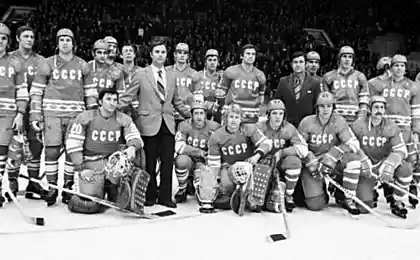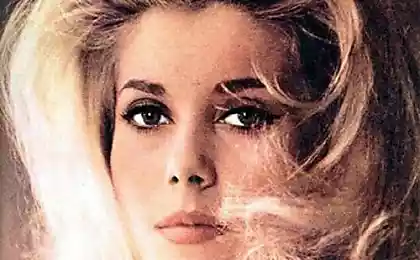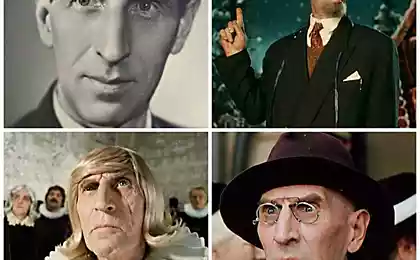819
Soviet and Russian trace in the "Oscar"
Russian trace
"Russian trace" can be traced to the "Oscar" since the first awards ceremony. Then the prize for best director was the director of Russian origin Luis Malstoun, and a year later he received the "Oscar" for best picture. Dmitri Tiomkin, also an immigrant, was nominated for 22 statuettes, and became the winner of four. Peter Ustinov became the winner twice: in 1960 and 1964. And that's not all members of our immigration topped the American Film Academy.
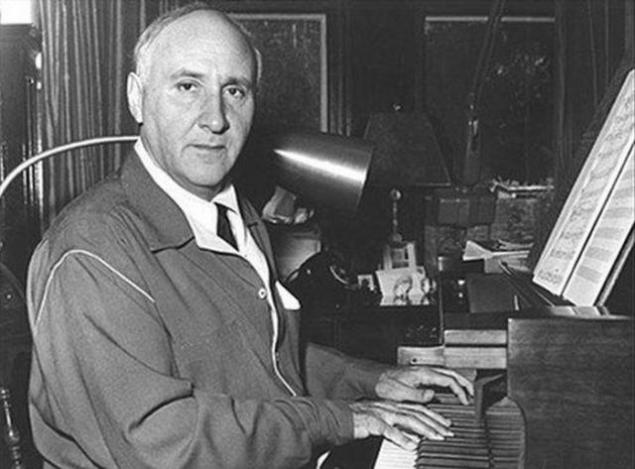
"Moscow Strikes Back»
The first winner of the "Oscar" of the Soviet Union became a documentary filmmakers Varlamov and Kapalin "Moscow Strikes Back." The film won the award in 1943, the year before she was awarded the Stalin Prize. And today, this film is not only an example of courage and devotion of its founders cinematography, but also an invaluable historical document of military age. This documentary "face of war." In America, the film was redubbed, rewired and even renamed. The American Spectator knows him as "Moscow Strikes Back».
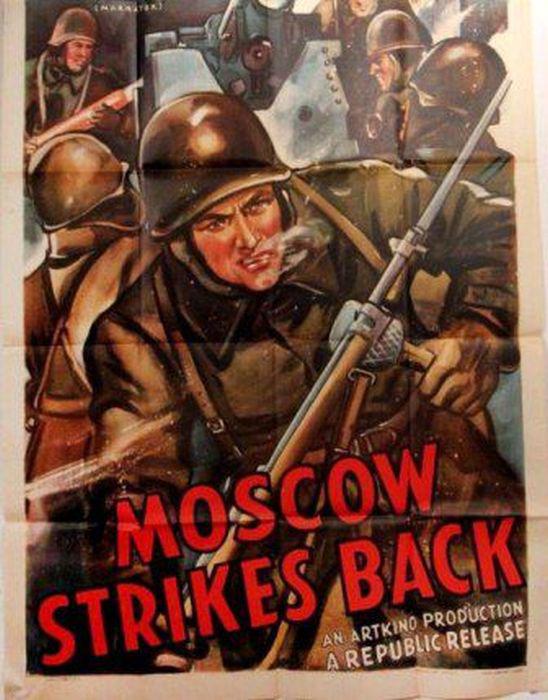
"War and Peace»
Our first "Oscar" in a feature film - a picture of "War and Peace" by Sergei Bondarchuk, the winner in the category "Best Foreign Language Film." Four-part motion picture won in 1968. Nominated film also on the "Best art director," but did not win. Magnificent ensemble cast, a whopping cost of complex, innovative shooting battle scenes, great screenwriter - only a small part of the indisputable advantages of this painting. Above its creation literally beat half of the country, the Ministry of Defence has provided the horses and entire military units, the Ministry of Light Industry to invest in the creation of costumes, during the filming was formed a cavalry regiment cinematic. The shooting lasted for almost six years. In the current situation a huge period.
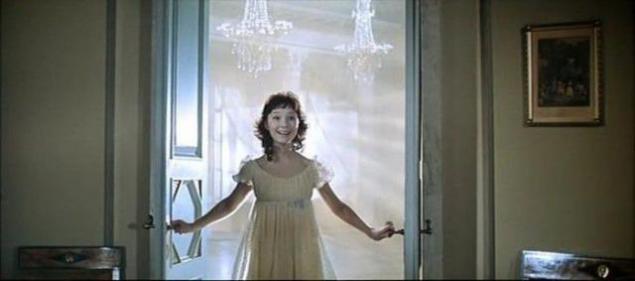
"Dersu Uzala»
In 1975, the "Oscar" won the film "Dersu Uzala". Joint Russian-Japanese project rezhisserstvom classic movie by Akira Kurosawa got, except for "Oscar" awards six more festivals around the world. The film, like the work of Vladimir Arsenyev affects many issues: the relationship between civilization and nature, the problem of urbanization and man's place in the world, the problem of faith and ethics. According to the book Arsenyev director Babayan in 1961 has already been removed from the picture of the same name, but international fame was to find exactly version of Kurosawa. The film is undoubtedly good, and today it looks the same breath, however, the controversy surrounding the significance of the two adaptations continues. But it's more from the category of "critics argue." View it is useful to both the film adaptation will not regret it.
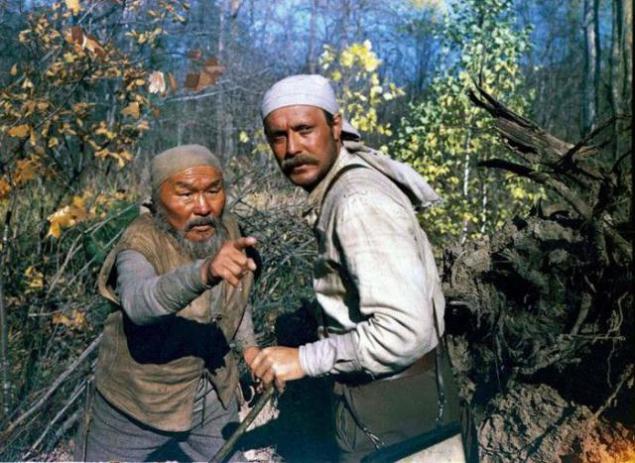
"Moscow Does Not Believe in Tears»
The third Russian director has received "Oscar" was Vladimir Menchov and his painting "Moscow Does Not Believe in Tears". The film could not help but be interested in Oscar committee. In 1980, it looked about 90 million Soviet viewers, and "Oscar" like "cash". The picture was cold at first received by critics, it saw a cheap melodrama, but the nomination for "Oscar" and the huge box office speak for themselves. The film is called, "went to the people", sold for a quote, his characters have become role models. Vladimir Menchov in 1981 was restricted to leave. Some of cinematic brethren dashed off to the director cavil. He received a statuette for Soviet cultural attache. The award has found a hero in eight years when fewer received the award "Nika».

"Burnt by the Sun»
So far the only movie to be awarded the "Oscar" of the Soviet era was the picture of "Burnt by the Sun" by Nikita Mikhalkov. The film was made with the support of the French studio as "Dersu Uzala", is considered a co-production between the two countries. Events pictures send us back to the beginning of the era of Stalin's "purges».
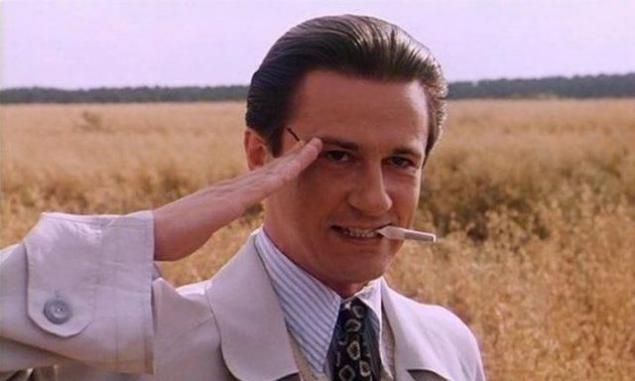
"The Old Man and the Sea»
2000 - American Academy Award winner was the film "The Old Man and the Sea" by Alexander Petrov. Labor multiplier is fundamentally different from cine, it requires no investment fabulous, but great talent, patience, will, and once again the talent to literally paint film. In technology, Alexander Petrov, for example, one second of screen time is 20 drawings on the glass. Four to four and a half minutes per shift relieve directors, cinematographers. See the difference? 4 minutes - is 240 seconds and 4,800 drawings director-animator. This is an extremely laborious and difficult work - to draw cartoons.

"Russian trace" can be traced to the "Oscar" since the first awards ceremony. Then the prize for best director was the director of Russian origin Luis Malstoun, and a year later he received the "Oscar" for best picture. Dmitri Tiomkin, also an immigrant, was nominated for 22 statuettes, and became the winner of four. Peter Ustinov became the winner twice: in 1960 and 1964. And that's not all members of our immigration topped the American Film Academy.

"Moscow Strikes Back»
The first winner of the "Oscar" of the Soviet Union became a documentary filmmakers Varlamov and Kapalin "Moscow Strikes Back." The film won the award in 1943, the year before she was awarded the Stalin Prize. And today, this film is not only an example of courage and devotion of its founders cinematography, but also an invaluable historical document of military age. This documentary "face of war." In America, the film was redubbed, rewired and even renamed. The American Spectator knows him as "Moscow Strikes Back».

"War and Peace»
Our first "Oscar" in a feature film - a picture of "War and Peace" by Sergei Bondarchuk, the winner in the category "Best Foreign Language Film." Four-part motion picture won in 1968. Nominated film also on the "Best art director," but did not win. Magnificent ensemble cast, a whopping cost of complex, innovative shooting battle scenes, great screenwriter - only a small part of the indisputable advantages of this painting. Above its creation literally beat half of the country, the Ministry of Defence has provided the horses and entire military units, the Ministry of Light Industry to invest in the creation of costumes, during the filming was formed a cavalry regiment cinematic. The shooting lasted for almost six years. In the current situation a huge period.

"Dersu Uzala»
In 1975, the "Oscar" won the film "Dersu Uzala". Joint Russian-Japanese project rezhisserstvom classic movie by Akira Kurosawa got, except for "Oscar" awards six more festivals around the world. The film, like the work of Vladimir Arsenyev affects many issues: the relationship between civilization and nature, the problem of urbanization and man's place in the world, the problem of faith and ethics. According to the book Arsenyev director Babayan in 1961 has already been removed from the picture of the same name, but international fame was to find exactly version of Kurosawa. The film is undoubtedly good, and today it looks the same breath, however, the controversy surrounding the significance of the two adaptations continues. But it's more from the category of "critics argue." View it is useful to both the film adaptation will not regret it.

"Moscow Does Not Believe in Tears»
The third Russian director has received "Oscar" was Vladimir Menchov and his painting "Moscow Does Not Believe in Tears". The film could not help but be interested in Oscar committee. In 1980, it looked about 90 million Soviet viewers, and "Oscar" like "cash". The picture was cold at first received by critics, it saw a cheap melodrama, but the nomination for "Oscar" and the huge box office speak for themselves. The film is called, "went to the people", sold for a quote, his characters have become role models. Vladimir Menchov in 1981 was restricted to leave. Some of cinematic brethren dashed off to the director cavil. He received a statuette for Soviet cultural attache. The award has found a hero in eight years when fewer received the award "Nika».

"Burnt by the Sun»
So far the only movie to be awarded the "Oscar" of the Soviet era was the picture of "Burnt by the Sun" by Nikita Mikhalkov. The film was made with the support of the French studio as "Dersu Uzala", is considered a co-production between the two countries. Events pictures send us back to the beginning of the era of Stalin's "purges».

"The Old Man and the Sea»
2000 - American Academy Award winner was the film "The Old Man and the Sea" by Alexander Petrov. Labor multiplier is fundamentally different from cine, it requires no investment fabulous, but great talent, patience, will, and once again the talent to literally paint film. In technology, Alexander Petrov, for example, one second of screen time is 20 drawings on the glass. Four to four and a half minutes per shift relieve directors, cinematographers. See the difference? 4 minutes - is 240 seconds and 4,800 drawings director-animator. This is an extremely laborious and difficult work - to draw cartoons.





